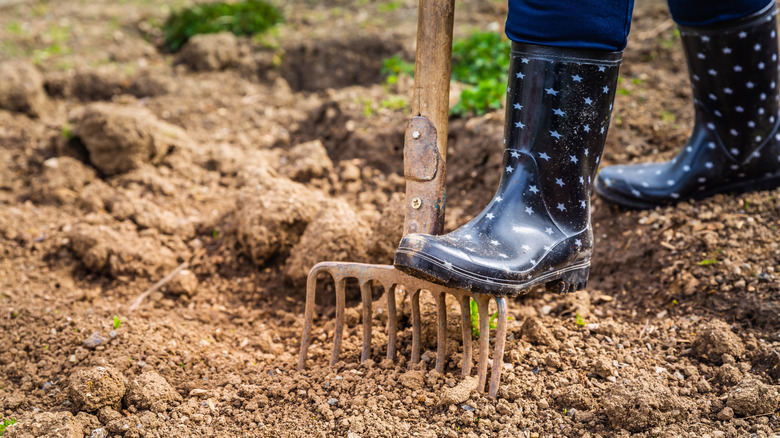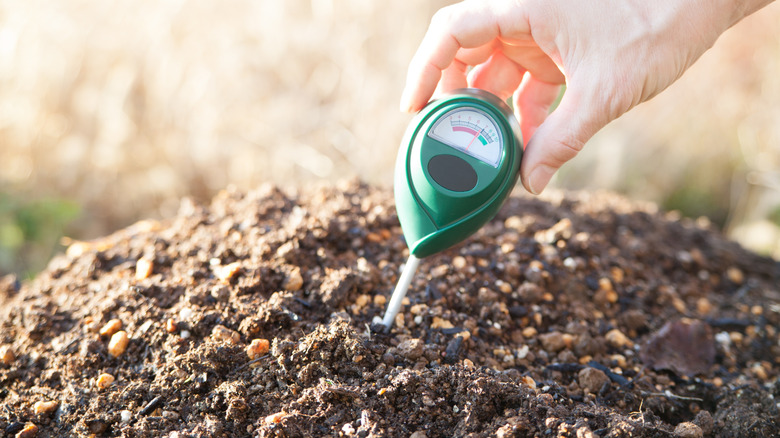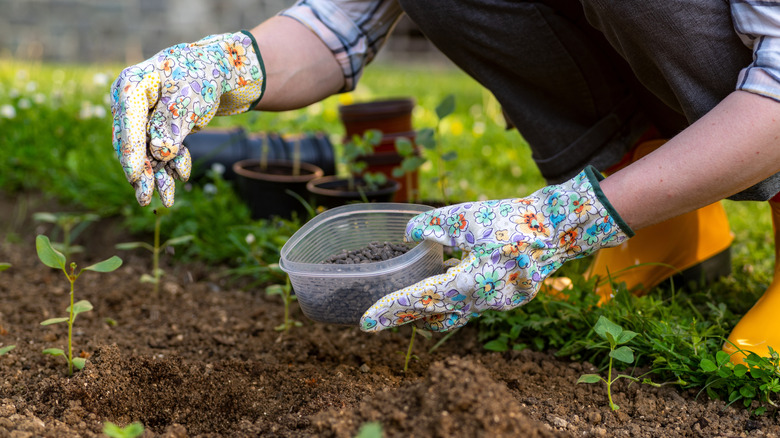The Biggest Mistakes You're Making When Preparing Soil For Your Garden
We may receive a commission on purchases made from links.
Before you can add new plants to an empty section in your garden, you must take some time to prepare your soil properly. Many gardeners struggle to nail this task. This can be detrimental since proper soil preparation is one of the foundations of plant health. Failing to test the soil, adding too much organic matter, and underestimating how long it takes to amend soil are the biggest mistakes you might be making when preparing soil for your garden. However, all you have to do is avoid these mishaps to prepare high quality soil for your plants. You will then be one step closer to growing the garden of your dreams.
Healthy, properly prepared soil provides a variety of benefits. It makes plants less vulnerable to disease and pests, helps control weeds, and produces the lushest growth results. This is why it's so important to understand how to optimize your soil's health without error. Once you have mastered the art of preparing soil, you get to look forward to growing a healthy, thriving garden. You do not have to be an expert to understand how to maintain healthy soil either, so there is no need to feel intimidated. It doesn't take much to overcome these mistakes.
Forgetting to test your soil
You need to have a thorough understanding of your soil's health in order to achieve the proper pH balance and nutrient levels to grow healthy plants. As a result, it's important to test your soil to gather the information you need to amend it properly. Unfortunately, some gardeners skip out on this step. There are a few reasons why not testing your soil is a rather detrimental mistake. First, you need to conduct a pH test to measure the pH of your soil before making any amendments. Secondly, it's also important to use testing to determine what kind of soil you have. Is it sandy, silty, clay, or loamy? A soil test kit will tell you this as well, but failing to test can result in incorrect nutrition and poor plant health. You can purchase one online, such as the Luster Leaf Rapitest Soil Test Kit, or pick one up from a Cooperative Extension Service location near you. Keep in mind that tests conducted by your county extension office should produce the most accurate results.
Your test should provide recommendations for the fertilizers you need to add to your soil to improve the quality. If your test results indicate that you need to add nitrogen, aged manure or compost are the types of amendments to reach for. For test results that suggest your soil is in need of phosphorus, add rock phosphate powders, bone meal, or bone char. Potassium is the last element you might need to add. If this is the element your soil is in need of, use granite dust, greensand, or wood ash fertilizers.
Adding too much organic matter and expecting immediate results
Believe it or not, applying too much organic matter can actually threaten the health of your plants. Sure, organic matter, such as compost, does lots of good for your plants. For example, it boosts nutrients and oxygen. This is why you should add it after removing debris and loosening the soil. However, adding more than the recommended amount may actually threaten elements that are vital for plant growth.
This is why piling on more than needed is another one of the biggest mistakes gardeners make when preparing soil. Too much organic matter can disrupt the pH of your soil because it boosts the activity of microorganisms, which then depletes nitrogen. You also risk adding too much phosphorus to your soil and creating pollution. To avoid this problem, make sure that organic matter is no more than only ¼ of your soil contents.
The final mistake you might be making is underestimating how much time it takes your soil to improve after you have amended it by adding the necessary organic matter. Your soil will not change overnight. In fact, you should expect to add 1 to 2 inches of organic matter into your soil each year in order to see gradual improvement. Continue to test your soil each year to observe progress.


